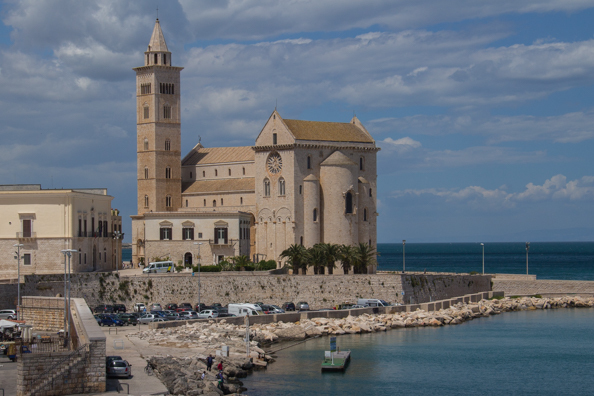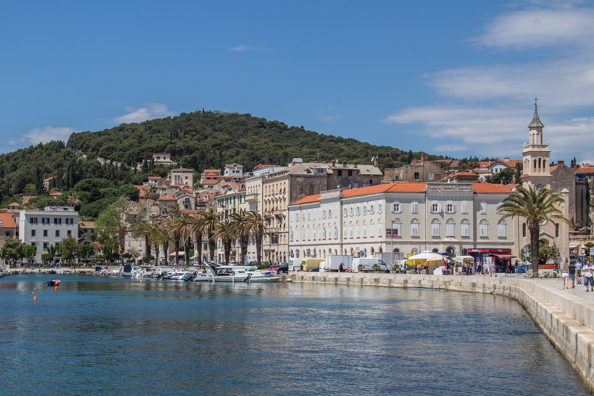
As we gallop towards BREXIT It is important to know how it will affect our holidays in European Union countries from 1 January 2021.
Simon Calder encapsulates the main changes in this excellent article he has written for The Independent.
Passports
If you have a burgundy passport with “European Union” on the cover, it will continue to be valid as a UK travel document. But it loses all its EU powers. From the start of 2021, European rules on passport validity become much tougher. On the day of travel to the EU (as well as non-members Andorra, Iceland, Liechtenstein, Norway, San Marino, Switzerland and the plucky Vatican City) your passport must pass two tests.
1. Does it have six months’ validity remaining?
2. Was it issued less than nine years, six months ago?
The reason: the UK has traditionally given renewals up to nine months’ extra validity in addition to the normal 10 years.
A passport issued on 30 June 2011 could show an expiry date of 30 March 2022, for example. While this was fine when the UK was part of the European Union, British travellers must now meet the strict rules on passport validity for visitors from “third countries”. In particular, passports issued by non-member countries are regarded as expired once they have been valid for 10 years.
While the expiry date printed in the passport remains valid for the UK and other non-EU countries around the world, within the European Union the issue date is equally critical. A passport issued on 30 June 2011 is regarded by the EU as expiring on 30 June 2021. Therefore, if the holder attempted to board a plane to the European Union on New Year’s Day 2021, it would be considered to have insufficient validity and the airline would be obliged to turn them away – even though the British passport has almost 15 months to run.
Until September 2018, the UK government appeared unaware of the problem. Once the issue was identified, the practice of giving up to nine months’ grace ended abruptly. But tens of millions of passports valid for longer than 10 years are in circulation.
Border formalities
EU fast-track lanes for passport control will no longer be open to British travellers, although countries that receive a large number of visitors from the UK, such as Spain and Portugal, may make special arrangements. But immigration procedures will be slower, and British travellers will no longer have any guarantee of entry.
At present, all that a border official can do is to check the travel document is valid, and that it belongs to you.
From 1 January 2021, the official is required by EU law to conduct deeper checks. They may ask for the purpose of the visit; where you plan to travel and stay; how long you intend to remain in the EU; how you propose to fund your stay; and whether you constitute a threat to public health.

Length of stay
From 1 January 2021, as the UK chooses to become a third country, the EU’s long-standing “90/180 rule” takes effect for British travellers.
For holidaymakers and business travellers who normally stay a long time in Europe, it has significant effects. You may stay only 90 days (about three months) in any 180 (six months) in the Schengen area – comprising almost all the EU countries except Bulgaria, Croatia, Cyprus and Romania. (Ireland is also non-Schengen, but is part of the Common Travel Area with freedom of movement to and from the UK and smaller islands.)
Example: if you spend January, February and March in the Schengen Area (totalling 90 days), then you must leave the zone before 1 April and cannot return until 30 June.
You will then be able to spend the summer in Europe until 27 September, when you must leave again. You may not come back until Boxing Day.
Any time spent in the Schengen Area up to the end of 2020 does not count. So if you spend December in Spain, the clock does not start ticking until New Year’s Day.
The European Union has a useful online “short-stay visa calculator”.
The UK government says: “Different rules will apply to Bulgaria, Croatia, Cyprus and Romania. If you visit these countries, visits to other EU countries will not count towards the 90-day total.”
British citizens can stay as long as they like in the Republic of Ireland.
People who have a work or residential visa for a specific EU country will be treated differently.
What happens if I overstay?
In general travellers are given three days’ grace. Any longer than that and they are likely to be handed an entry ban for one year. This applies throughout the Schengen Area – not just the country in which you overstayed.
Can’t I just nip across a border and ‘re-set the clock’?
No. The 90/180 rule applies to the entire Schengen Zone. If you leave the zone (for example by returning to the UK or crossing from Slovenia into Croatia) that exit will be recorded on the central database.
When you return, the frontier officials will check to see how much of your allowance has been used and calculate how much remains.

Visas
Initially British travellers will not need to apply in advance for permission to enter the EU. But from 2022 (or possibly later) British visitors will need to register online and pay in advance for an “Etias“ permit under the European Travel Information and Authorisation System. This is a relatively light-touch visa, akin to the Esta used by the US.
Returning to the UK
Previously there were no limits on the value of goods you could bring in from European Union nations. From the start of 2021, the European Union will be treated the same as the rest of the world – which means that there are now restrictions.
For alcohol, the limits are generous: 4 litres of spirits or 9 litres of sparkling wine, 18 litres of still wine and 16 litres of beer, which hopefully will see you through at least an evening.
Arrivals to the UK will also qualify to bring in 200 duty-free cigarettes. “Anything that increases the availability of tobacco is a negative step for public health,” the British Medical Association says. But the previous practice of buying large quantities of cigarettes or tobacco in countries such as Belgium or the eastern European states will have to cease.
If you exceed any of these limits, you will pay tax on the whole lot.
There is a limit of €430 – roughly £400 – for all other goods, from Camembert to clothing.

Health care
For more than 40 years, British travellers have benefited from free or very low-cost medical treatment in the EU and its predecessor organisations. The European Health Insurance Card (Ehic) and the document it replaced, the E111, have proved extremely valuable for many elderly travellers, and/or people with pre-existing medical conditions.
Since the EU referendum, the government has repeatedly said that it hopes to establish a reciprocal health treaty mirroring the European Health Insurance Card (Ehic).
The Independent understands that negotiations are continuing on health care, 232 weeks after the vote to leave the European Union.
If an agreement is not reached, the government may pursue options such as bilateral arrangements between the UK and individual countries.
On 9 December 2020, when asked about free medical treatment in the EU in the event of a no-deal Brexit. Michael Gove promised: “For a period, yes, there will be appropriate access.”
One certainty is that travellers who are abroad at the turn of the year will continue to be covered: if you enter an EU country by 31 December 2020, your Ehic will remain valid until you leave that country.
The Association of British Insurers warns: “Claims costs within Europe are currently reduced due to the presence of the Ehic, which covers some or all state-provided medical costs.
“In the absence of the Ehic or similar reciprocal health agreement, insurers will inevitably see an increase in claims costs – this could have a direct impact on the prices charged to consumers.”
EU nationals in the UK will be able to apply for a new Global British Ehic card, as will UK students studying in the European Union – and some British pensioners who live in the EU, plus their families. In January 2021 a new (free) Global health card became available to UK citizens.

Driving licences
Your licence carries the EU symbol. As with passports, it will lose its European powers, but will still be valid as a UK document from 2021 until its expiry date.
The government says: “You may need extra documents from 1 January 2021. You might need an international driving permit (IDP) to drive in some countries.”
In fact, you may need two. A 1949 IDP (valid one year) is required for Spain, Cyprus and Malta, while the 1968 version (valid three years) will be essential everywhere else in the EU.
The IDP is an antiquated document available at larger post offices. Take your driving licence plus a passport photo and £5.50 for each permit that you need.
Motor insurance
Under the European Union 2009 motor insurance directive, any vehicle legally insured in one EU country can be driven between other European nations on the same policy.
From 1 January you will need a “Green Card” – an official, multilingual translation of your car insurance that demonstrates you meet the minimum cover requirements for the country you’re visiting.
Insurers will generally provide them free of charge, but require around two weeks’ notice.

Flights
The transport secretary, Grant Shapps, says: “The government’s priority is to ensure that flights can continue to operate safely, securely and punctually between the UK/EU at the end of transition period, regardless of the outcome of negotiations.
“Air travel is vital for both the UK and the EU in connecting people and facilitating trade and tourism, and we are confident measures will be in place to allow for continued air connectivity beyond the end of 2020.”
Some UK airport disruption caused by tough new passport rules may occur in the first few days if significant numbers of British travellers are denied boarding.
Ferries/Eurotunnel
Ships will continue to sail and trains will continue to run, but the National Audit Office (NAO) warns that motorists taking their cars to France on ferries from Dover or Eurotunnel from Folkestone face waits of up to two hours once the Brexit transition ends – and that queues could be “much longer” in summer.
Eurostar
Passenger trains linking London St Pancras with Paris, Brussels and Amsterdam will continue to run – but because of travel restrictions applied in response to the coronavirus pandemic, services are currently extremely limited.

Mobile phones
From 1 January 2021, the EU-wide ban on roaming charges for phone calls and internet use no longer applies to people with UK mobile phones. Providers will be free to impose whatever fees they wish. But all the big providers have told The Independent they do not intend to bring back roaming charges.
O2 says: “We’re committed to providing our customers with great connectivity and value when they travel outside the UK. We currently have no plans to change our roaming services across Europe, maintaining our ‘Roam Like At Home’ arrangements.”
3 says: “We’ll give you free EU roaming just the same.”
EE says: “Our customers enjoy inclusive roaming in Europe and beyond, and we don’t have any plans to change this based on the Brexit outcome. So our customers going on holiday and travelling in the EU will continue to enjoy inclusive roaming.”
Vodafone says: “We have no plans to reintroduce roaming charges after Brexit.”
Should these or other providers introduce roaming charges, the government says it will cap the maximum for mobile data usage while abroad at £49 per month unless the user positively agrees to pay more.

Pets
For many years British travellers have been able to take a cat, a dog or even a ferret abroad with minimal formalities. But pet passports will run out at the end of the year, making journeys with cats, dogs and ferrets to the EU more complicated.
And for the first time, taking a pet to Northern Ireland from the rest of the UK will involve red tape – and a rabies vaccination for the animal.
The European Commission has set out the new rules for taking pets from Great Britain that will apply from 1 January 2021.
While animal owners from Northern Ireland will continue to have access to the EU’s pet passport scheme, those in England, Wales and Scotland will need to obtain an “animal health certificate” in advance of every visit to the European Union and Northern Ireland, showing their pet has been vaccinated against rabies.
In addition, for entry from Great Britain into Northern Ireland and the republic, as well as to Finland and Malta, pet dogs will have to be treated against Echinococcus multilocularis – an especially unpleasant tapeworm.
At present there are no restrictions in taking pets between any of the four UK nations. But after the Brexit transition phase ends, owners in Great Britain taking their pets to Northern Ireland will need to get an animal health certificate issued by an official vet attesting to a rabies vaccination.
Coming home will be the same as now. “There will be no change to the current health preparations for pets entering Great Britain from the EU from 1 January 2021,” says the UK government.

I am indebted to Simon Calder for the text of this article which explains the main changes we can expect when travelling to countries in the European Union after 1 January 2021. The images are my own.
Valery Collins is the Experienced Traveller
 An excellent raconteur, Valery has been writing about her experiences on the road since she started travelling 25 years ago. After publishing 4 books she turned to online travel writing and photography. Today she is editor, features’ writer and reviewer for ExperiencedTraveller.com and regularly contributes guided city walks to GPSmyCity.com
An excellent raconteur, Valery has been writing about her experiences on the road since she started travelling 25 years ago. After publishing 4 books she turned to online travel writing and photography. Today she is editor, features’ writer and reviewer for ExperiencedTraveller.com and regularly contributes guided city walks to GPSmyCity.com